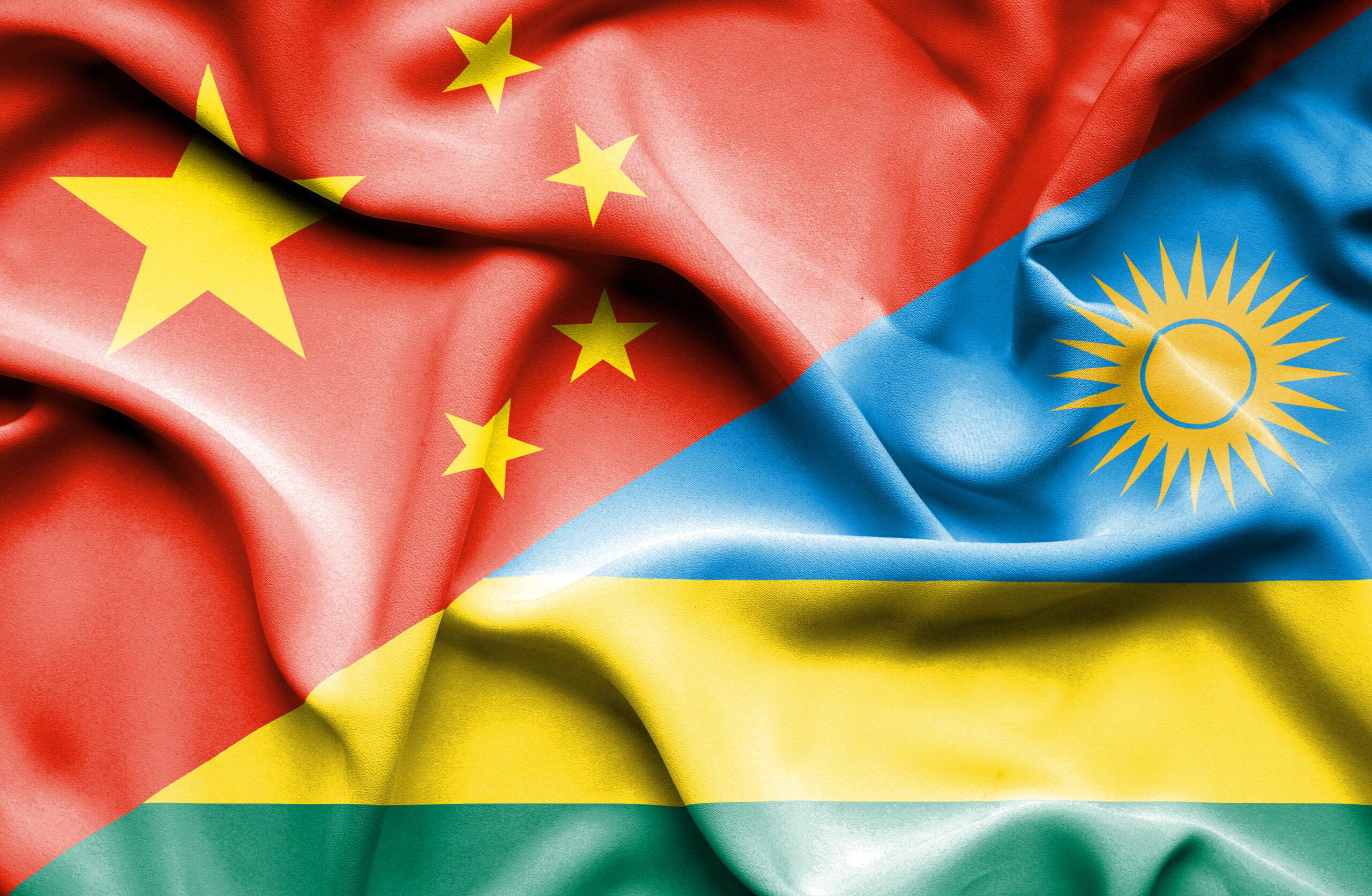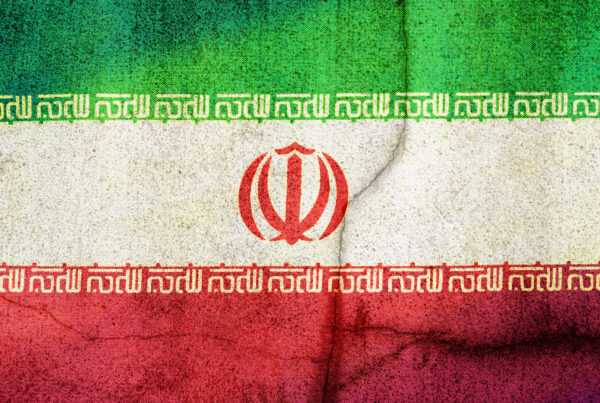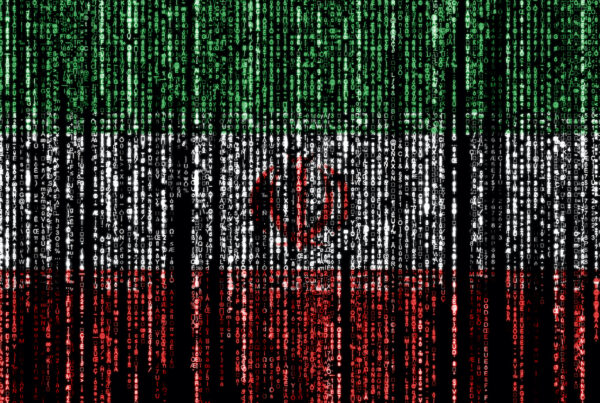Executive Summary: Rwanda represents a pivotal nexus for China’s strategic ambitions in Africa. While possessing limited natural resources, Rwanda’s East African location, young and growing population, and greenfield development opportunities for Chinese technology firms combine to make it an effective gateway for Chinese technological, economic, and political penetration of the continent. Sino-Rwandan programs focused on infrastructure development, technological advancement, and education carry serious implications for the future pattern of China’s broader relationship with the rest of Africa.
Introduction
Despite its comparatively small size geographically, demographically, and economically, Rwanda has become a key node for China’s ambitions in Africa, especially as an outlet for the Digital Silk Road. In many cases, large Chinese tech companies have invested first in Rwanda before expanding to the rest of Africa, and since 2006, numerous members of the Chinese party-state, including Politburo Standing Committee members, the Foreign Minister, the Chairman of the Standing Committee of the National People’s Congress, and even Xi Jinping himself, have visited Rwanda. These visits have occurred at a rate equal to or higher than other African countries despite Rwanda’s small size and seeming geopolitical insignificance. For China, promoting and developing the Sino-Rwandan relationship is not primarily about direct trade or development. Rather, Rwanda and the Rwandan people represent a greenfield opportunity to influence the development of the entire African continent, building Chinese influence by embedding Chinese technology into nascent digitalization efforts through education and investment. Success would burnish the reputation of China’s tech industry, ensure the continued existence of a large market for Chinese hardware and software in Africa, and strengthen China’s efforts to influence global standards and practices in multiple sectors.
These investments represent a new chapter in Sino-Rwandan relations, with China’s involvement in Rwanda remaining relatively slight during the first few decades of their relationship. China did not support either of the UN missions (UNOMUR and UNAMIR) during the Rwandan genocide and its immediate aftermath from 1994-1996. Since the end of the end of the civil war, Rwanda has been governed by Paul Kagame, a former opposition leader and guerilla fighter who sees similarities between the Chinese and Rwandan experiences and has sought to build an authoritarian developmental state.
While China’s activities in Rwanda resemble those seen in other African countries, including typical endeavors such as infrastructure construction, technology transfer, and economic development, they deviate from the typical “Angola Model” largely focused on loans for infrastructure projects repaid through resource exports. In nominal terms, the Sino-Rwandan trading relationship is miniscule, even as China has become Rwanda’s largest trading partner. Rwanda possesses very few of the kinds of natural resources that have historically driven Chinese investment in the region. Even for East Africa, the Sino-Rwandan relationship is relatively new, as Rwanda’s neighbor Tanzania is the Chinese Communist Party’s (CCP) oldest ally on the continent. Still, Rwanda remains an attractive destination for Chinese investment thanks to its central location in East Africa, political and economic stability, progressive development policies, and its influence in regional and international organizations. It is a member of the East African Community (EAC), one of Africa’s most integrated regional economic communities, the African Union (AU), and the Commonwealth. Despite being landlocked, Rwanda serves as a trade gateway to surrounding countries, enhancing its potential as a logistics hub. Thanks to these attributes, analysts have begun to refer to Rwanda as a potential “Singapore of Africa.” As such, the Rwandan government’s development ambitions, with an emphasis on leapfrogging the intermediate stages of development through digitalization, dovetail with Chinese objectives.
China’s overcapacity in infrastructure materials, combined with a glut in capital, means it has every incentive to seek out investment and loan opportunities wherever they can be found. This applies doubly to greenfield economies, where entire new generations can be trained on Chinese software and provided with Chinese hardware. As evidenced by a variety of education programs described below, key Chinese leaders see Rwanda as a potential Information and Communication Technology (ICT) base in Africa, from which Chinese expertise and influence can penetrate the continent more effectively.
Digital Silk Road
China’s investments in Rwanda span multiple sectors, including ICT under the Digital Silk Road initiative, as well as more traditional targets such as physical infrastructure, energy, mineral/natural resources, and agriculture. The Digital Silk Road (DSR) is a Chinese-led initiative that strives to boost digital connectivity and develop digital infrastructure across Asia, Europe, and Africa, intended to mirror the ancient Silk Road trade routes. It is an extension of the broader Belt and Road Initiative (BRI), unveiled in 2013. The DSR aligns closely with Rwanda’s vision for digital transformation. Through its Vision 2020 and Vision 2050 development plans, Rwanda aspires to become a regional technology hub and ICT leader in Africa, enabling it to become a middle-income and then high-income country.
Under the aegis of the DSR, leading Chinese technology firms are taking a pivotal role in developing Rwanda’s digital infrastructure. These projects span a range of areas, including broadband and 5G networks, data centers, e-commerce platforms, and smart city initiatives. Key Chinese firms such as Huawei, Alibaba, and Startimes have been instrumental in driving this development, via both infrastructure development and educational initiatives. It is these educational initiatives that have the power both to deepen dependence on Chinese technology, as well as transmit implicit and explicit messages on China’s strength and the rightness of its development and governance models.
Huawei’s engagement with Rwanda began in the mid-2000s, but saw marked expansion in March 2017, when Huawei signed a Memorandum of Understanding (MOU) with the Rwandan government to expedite the construction of regional data centers, national broadband capacity, smart grids, and smart education systems in the country. Huawei contributes to “Kigali Innovation City,” a series of planned developments which form a significant part of Rwanda’s efforts to establish itself as a tech and innovation hub in Africa. Supported by Huawei’s “Smart City Solutions” financing program, the innovation city, planned near the capital Kigali, aims to nurture local talent, attract global tech firms, and create an ecosystem conducive to digital innovation and entrepreneurship. The Huawei “Smart City Solutions” fund aims to support these cities in setting up Internet of Things systems, specifically including command and control systems for communication and intelligent video surveillance. An ongoing development since 2016, Kigali Innovation City is largely co-financed by the Rwandan government and Africa50, an investment platform supported by 31 African countries, two African central banks, and the African Development Bank (AfDB). China Civil Engineering Construction Corporation has been contracted to assist in the area’s development.
Huawei also contributes significantly to Rwandan digital education, collaborating with the government to provide internet connectivity and educational materials to approximately six thousand schools across the country. Huawei also spearheads a program called “Seeds for the Future,” a partnership with the Rwandan Ministries of Education and ICT, as well as Rwandan universities, that offers training to Rwandan entrepreneurs in key ICT areas such as 5G and cloud technology. Successful candidates are rewarded with a two-week “technological study trip” to China, where they also receive instruction in the Chinese language and culture. As expressed by a participant, “We need to learn Chinese because China is a big economy and in order for us to benefit from it we need the language which will be our bridge. I am going further to learn more Chinese when I go back to Rwanda.”
The Huawei ICT Academy program is another branch of Huawei’s Rwandan education outreach initiative, made up of a series of agreements between Huawei and Rwandan universities which facilitates the instruction of students in Huawei technologies and knowledge. Both the University of Rwanda and Rwanda Polytechnic are members of the initiative. According to Huawei’s Rwanda Country Director, the aim is to, over the period from October 2021 to the end of 2023, train and certify more than a thousand students in subjects such as 5G, artificial intelligence, cloud technologies, and WLAN. At this stage in Rwanda’s development, promotion of digital literacy programs is a surer way to impact the economy, which is why educational outreach is a key part of Huawei’s involvement.
Alibaba is also working to foster the Rwandan ICT industry. In October 2018, Rwanda became the first African country to host an Electronic World Trade Platform, an Alibaba initiative that equips small- and medium-sized enterprises with greater access to the global market through a suite of commerce tools encompassing cloud computing, mobile payment technology, and skills training. In practice, this enhances the trade relationship between Rwanda and China, despite the small minimal impact on the Chinese economy. Chinese official documents even acknowledge the relationship as having “very little direct trade” with Rwandan enterprises “still unfamiliar with doing business with the Chinese.” Nonetheless, the Chinese government has granted Rwanda zero tariff treatment for most goods exported from Rwanda to China. Much more important, however, than the current state of trade is the impact that easy access to Alibaba technology will have on the future development of the country’s economy and its youth.
Alibaba efforts have been reinforced by Chinese provincial-level government, as when in 2019, the Governor of Zhejiang participated in a China-Rwanda Business Forum with a 57-member delegation, attending a meeting at which the Rwandan Development Board signed four MOUs with Chinese counterparts, deepening their relationship with both Alibaba and Zhejiang Province. This was part of a series of efforts made by the Zhejiang provincial government to cultivate links with Rwanda, as Jinhua Polytechnic in Zhejiang Province had already aided the expansion of Musanze Polytechnic in Rwanda and provided equipment to the school. Jinhua Polytechnic has also been offering scholarships to Rwandan students since 2014 to train in vehicle inspection and maintenance technology, communication networks and equipment, and hospitality management, among other fields. By mid-2019, 42 Rwandans had graduated from Jinhua Polytechnic, with 53 still enrolled.
Two of the MOUs signed at this meeting dealt with Alibaba’s investment in Rwanda, specifically extending the eWTP framework and building capacity. A third MOU signed at the meeting was between Alibaba and DP World, focusing on logistics and distribution of Chinese products across Africa via Rwanda.
Rwandan access to programs at the Alibaba Business School is an example of one of the many Chinese initiatives which involve hosting Rwandans in China. The Alibaba Business School at Hangzhou Normal University has actively recruited Rwandan high school graduates to apply for a bachelor’s degree in e-commerce. An Alibaba “Netpreneur” Training Program has seen Rwandan participants traveling to Hangzhou for ten days, meeting with business leaders from Alibaba Group and merchants on Alibaba’s platforms. In January 2019, twelve Rwandan government officials also attended a four-day “New Economy Workshop” hosted by Alibaba in Hangzhou. Of these programs, some are relatively small in scale, such as the five-day “Global E-Commerce Program” hosted by Alibaba Business School, which trains teachers to impart e-commerce skills. A larger program is the eFounders Fellowship, where Alibaba and the United Nations Conference on Trade and Development work with individuals from global emerging markets, including Rwanda. Additional training on “Silk Road E-Commerce” has occurred under the sponsorship of the Rwandan Embassy in China and the China International Electronic Commerce Center, as part of a bilateral agreement on human resource development with the People’s Republic of China. This agreement has seen over 350 Rwandan entrepreneurs and public officials trained in aspects of e-commerce and digital economy. Both Chinese firms and the Chinese government have demonstrated a distinct interest in supporting efforts at expanding digital literacy in Rwanda.
On 16 December 2021, the Rwandan and Chinese governments signed an agreement providing Rwanda with a $30 million loan from the Exim Bank of China to support Rwanda’s “Smart Education” project, providing 1500 schools with internet access and education resources. Rwanda’s Digital Acceleration Initiative aims to boost digital transformation and economic growth in the country. The Initiative entails providing 250,000 households with financing to purchase smart devices as well as training 3 million people in basic digital literacy. The project is co-financed to the tune of $100 million by the Asian Infrastructure Investment Bank, which is headquartered in Beijing and supports infrastructure projects linked to the BRI. Ultimately, the wide range of educational opportunities described above, provided by both Chinese corporations and universities, are a crucial aspect of the Sino-Rwandan relationship. They enable Chinese entities to inculcate in Rwanda’s younger generations knowledge of, familiarity with, and (ideally) preference for Chinese systems, processes, and product ecosystems. More broadly, they can generate goodwill with segments of the Rwandan population who have the potential to become leaders in the political and business communities, providing a deeper reservoir of support for the Chinese state in the region.
Chinese technology companies consistently select Rwanda as an early market. Startimes, a Chinese pay-TV provider, first initiated its overseas expansion in Rwanda in 2008. Rural Rwandans predominantly rely on satellite connections for television, and in May 2019, the Chinese embassy in Rwanda transferred a state-funded satellite television project, undertaken by Startimes, to the Rwandan government. The Chinese Embassy in Rwanda detailed that through this project, 6,000 households and 900 public institutions were given the equipment necessary to access satellite television service.
Other Investment Areas
Infrastructure development constitutes a significant portion of Chinese investments in Rwanda, and roads especially are a key focus. Given the scarcity of railways or navigable rivers, roads remain the most crucial transportation medium for Rwanda. Since the 1980s, Chinese companies and state-owned enterprises such as China Civil Engineering Construction Corporation (CCECC) and China Road and Bridge Corporation have been developing Rwandan infrastructure, with key projects including road upgrades in the capital city of Kigali, the construction of the Rwandan Prime Minister’s office complex, and the construction of the Musanze Polytechnic School in the Northern Province. By 2019, it was estimated that 70% of Rwandan roads had been financed and built by Chinese enterprises.
In the energy and natural resources sector, Chinese investments aim to increase power generation capacity and improve access to electricity in Rwanda. This involves the development of hydroelectric power plants and renewable energy projects. Chinese firms also engage in the exploration and extraction of minerals, a major export for Rwanda. Rwanda suffers from a severe energy deficit, both in terms of supply and access. In 2021, over 70% of Rwandan households relied on firewood for fuel, with electricity only reaching 60.9% of the population. In February 2022, the Chinese ambassador to Rwanda signed a financing agreement with preferential loans to fund the Nabaronge River No. 2 Hydropower Project. Additionally, the Chinese government has arranged for 15 experts from the Rwanda Mining Agency to receive training in China on mining management and development techniques.
In agriculture, Chinese investments are focused on increasing crop yields, improving food security, and introducing advanced farming techniques and machinery. Despite modernization efforts, Rwanda is still heavily reliant on agriculture, which in 2019 generated 70% of export revenue and employed around 80% of the population. China has invested in supplying new agricultural technology to Rwandan farmers and has bought Rwandan farmland, although it remains a minor player.
Risks and Challenges
Both Rwanda and China face risks in their pursuit of a closer economic relationship. Even as China pours money into supporting Rwanda’s economic ambitions, many Rwandans still live in poverty, often priced out of the innovations meant to improve their lives. The developments described above serve to centralize the economy within Kigali, even though they are largely paid for by an economy dependent on agriculture exports. Even the construction of these developments has a limited knock-on effect, as Chinese firms often import labor from China, leading to limited interaction between Chinese workers and the local Rwandan population. This practice reduces the impact of Chinese workers’ salaries on the Rwandan economy and restricts the transfer of technology and expertise to the Rwandan labor force, thus reinforcing Rwanda’s dependency.
Similarly, reliance on Chinese technology for ICT development means less control for Rwanda over its digital infrastructure. These systems remain under the control of Alibaba, and therefore China. While Rwanda’s 4G coverage was reported to be 96.6 percent by a 2020 World Bank report, an impressive figure for a country at Rwanda’s socio-economic level, computer literacy was measured at just 8.4 percent. This disparity highlights the inability of a large part of the country’s population to benefit from a digital economy. Concerns about debt burdens also persist. Although China has offered some debt relief, such as forgiving a $7.1 million loan for a road project in Kigali, the issue remains a significant concern for Rwanda’s development. It’s worth noting that Rwanda has not limited its digital investments to China. For instance, the rollout of 4G internet and the provision of free Wi-Fi on Kigali’s buses have been largely supported by South Korean companies, demonstrating a diversified approach to digital infrastructure development.
Ultimately, Rwanda remains a largely as yet unproven investment for China; payoffs in infrastructure and technology will take time to generate returns, particularly given the very low levels of initial digital literacy and technology adoption in the country. Further, while Rwanda is currently stable under the leadership of President Paul Kagame, the potential for future political instability cannot be entirely ruled out. An intense debt burden brought on by Chinese loans could become a political flashpoint and inspire anti-Chinese backlash, as it has several African countries. Such backlash would directly undermine China’s fundamental influence-focused objectives in Rwanda.
Rwanda remains a comparatively unique example of Chinese overseas investment, focusing less on the immediate demands of Chinese trade policy and more on strategic objectives. In nominal terms, Rwanda is a minor field of endeavor, yet it is important precisely because it represents an access point to a potential next generation of clients and markets for Chinese high technology. Among the wide variety of Chinese activities and initiatives in Rwanda, arguably the most important are those related to education, because it is those that can enable Chinese technology to compete for potential hegemony on a strategically ever more important continent. Should China help Rwanda to succeed in becoming an innovation hub for Africa, more and more African leaders will likely buy into the Chinese digitalization “package”, benefitting China economically and conferring a valuable strategic advantage.
Sources available upon request.






